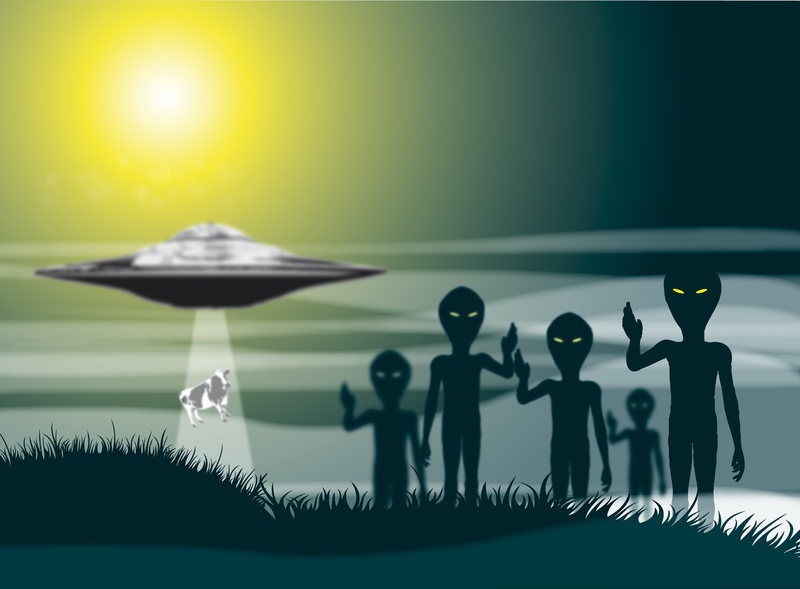
Alien spacecraft and little green men remain elusive figures in the latest trove of official UFO files released July 12 by the United Kingdom government.
There's no smoking gun anywhere in the 6,700 pages, which represent the ninth collection of government UFO files made public by the U.K.'s National Archives in Kew. But the new batch, which contains documents dating from 1965 to 2008, is full of interesting tidbits nonetheless.
For example, the files recount the story of a hotel owner on the Welsh coast who said she spotted a UFO in 1977. She claimed to see an object the size of a minibus fall from the sky and land in a field at the back of her property.
As she watched, two "faceless humanoids" clad in silver suits emerged from the mysterious craft, unnerving her so much that she asked the local authorities to investigate. [10 Alien Encounters Debunked]
Somewhat surprisingly, they did. An officer from a nearby Royal Air Force base checked out the field, and other military personnel made some inquiries locally to get to the bottom of the mystery.
While the investigation didn't produce any definitive results, it did zero in on one likely explanation, said David Clarke, senior lecturer in journalism at Sheffield Hallam University and author of the book "The UFO Files: The Inside Story of Real-life Sightings" (The National Archives, 2009).
"It turned out that they suspected, as a result of this investigation, that someone had been involved in a practical joke, and that they'd borrowed a firefighting suit that had been on display in a local shop," Clarke said in a video produced by The National Archives to accompany the new release of UFO files.
Sign up for the Live Science daily newsletter now
Get the world’s most fascinating discoveries delivered straight to your inbox.
"It was sort of white with a big black visor over the face," Clarke added. "This person had been walking around in this suit late at night, and maybe this had been what caused some of these weird sightings."
The new batch of documents also reveals what it was like to work at the U.K.'s UFO Desk, a Defence Ministry organization that assessed UFO reports for intelligence value before it shut down in late 2009.
The job wasn't quite as exciting as it perhaps sounds, according to a document written by a UFO Desk officer.
The idea of investigating unidentified flying objects "tends to suggest to the public that there are top secret teams of specialist scientists scurrying around the country in a real life version of 'The X-Files' …. [but] this is total fiction," the officer writes.
In reality, much of the work consisted of performing Internet searches, the officer added, according to National Archives officials.
The files also reveal a healthy dose of skepticism among governmental UFO investigators in the U.K. For example, in a 1978 briefing, one officer throws cold water on the thought that aliens may have visited our planet many times in the recent past.
"One is driven to the conclusion that a visit to an insignificant planet, such as the Earth, of an uninteresting star (the sun) would probably not occur more than once in 1,000 years or so, even if one assumes that every intelligent community makes, say, 10 launches a year," Clarke said in the video, reading the officer's report and paraphrasing his reasoning.
"He basically says that, therefore, claims of thousands of visits in the last decade by alien spacecraft to planet Earth is just too large a number to be credible," Clarke added.
This story was provided by SPACE.com, a sister site to LiveScience. Follow SPACE.com senior writer Mike Wall on Twitter @michaeldwall or SPACE.com @Spacedotcom. We're also on Facebook and Google+.











